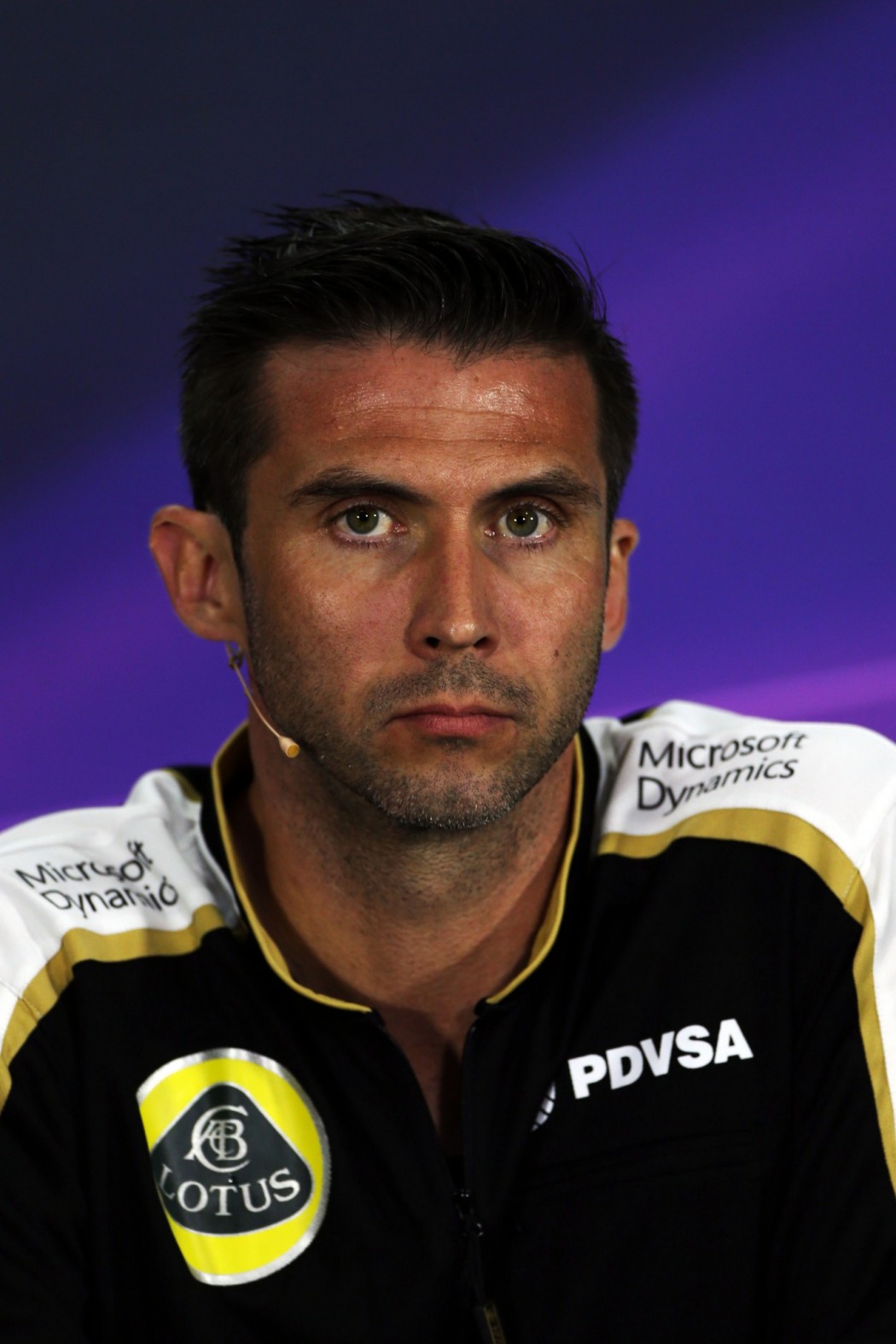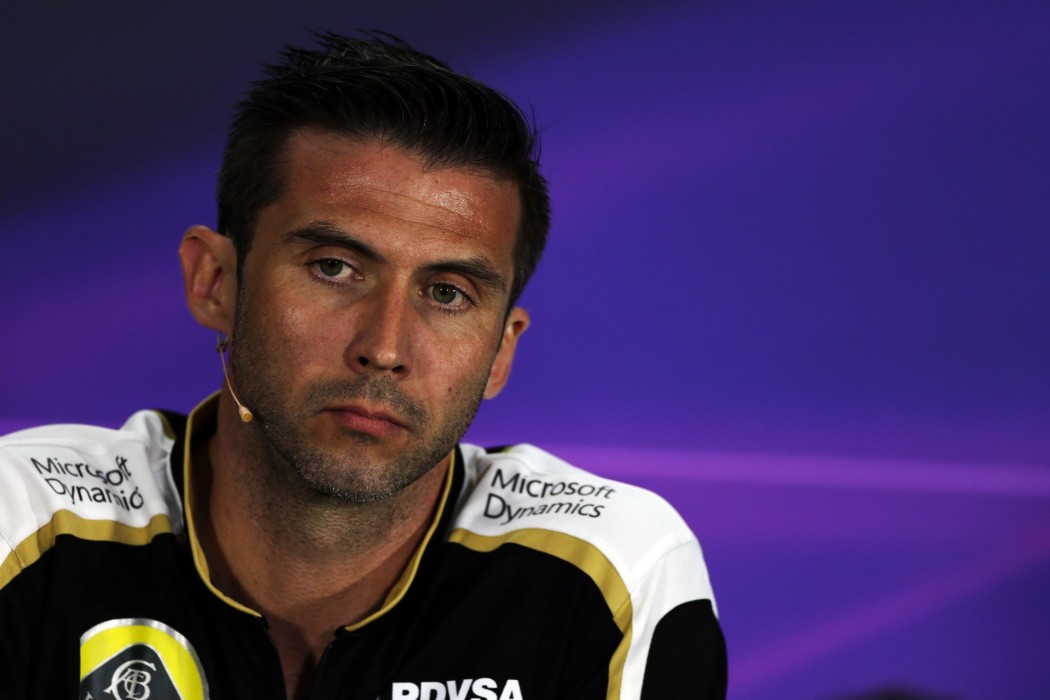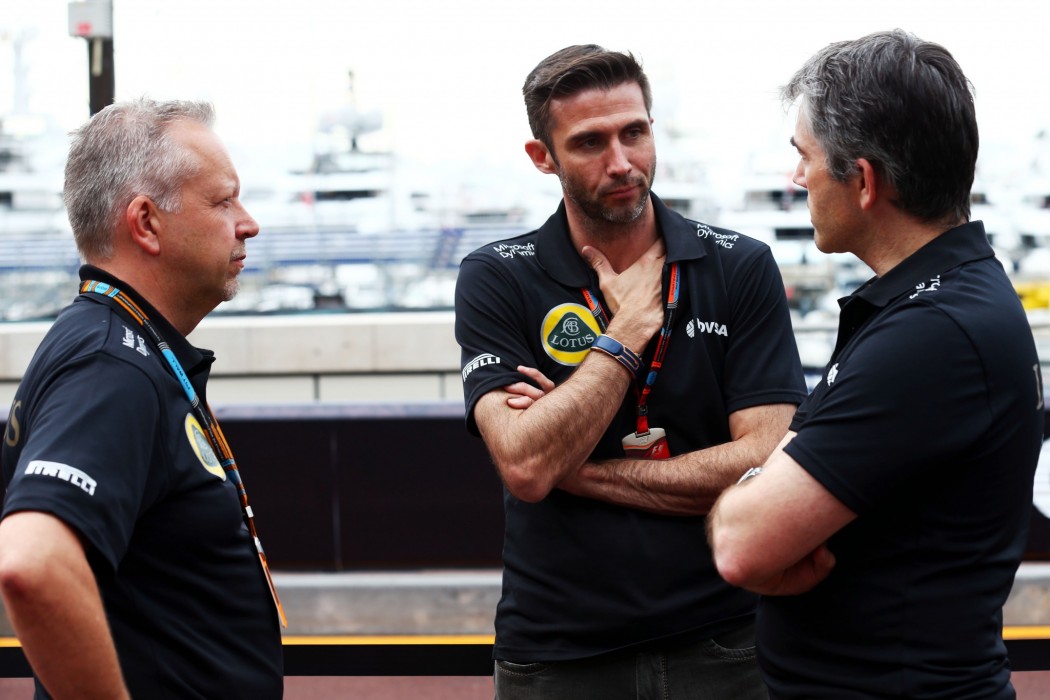New blood… They say “nostalgia isn’t what it used to be”, but I must admit that I felt nostalgic as recently as I drove through the beautiful but narrow country lanes that lead from the small historic Oxfordshire town of Woodstock to the Lotus F1 facility at Enstone. However, many times I make that journey, I’m never quite ready for the total contrast of scenery as the first glimpse appears of the state of the art high-tech facility that in its time has been home to no less than three Formula 1 teams.
Click here to subscribe to our print edition!
If the Lotus F1 Team sign at the security office hadn’t been there, I could easily have imagined that I was back in 1996, paying my first visit to the Benetton F1 Team to meet Flavio Briatore, who ran the team then. I went on to become the team’s Commercial Director and can still recall in 2000 being told by Pat Symonds that Benetton F1 had been sold lock-stock-and-barrel to Renault. Today, of course, the French company’s yellow and blue race cars have, in turn, been replaced by the famous and distinctive black and gold livery.
The Lotus F1 Team is now owned by a Luxembourg-based venture capital group Genii Capital, with Group Lotus – the company that produces the road cars – effectively a major sponsor.
It would have been easy for Genii Capital to have gone down the route of bringing in a “big name” Formula 1 personality to run the team, in the same way, that football teams seem bound to participate in the closed-shop merry-go-round of managers. It says a lot about Genii’s business acumen that they didn’t adopt that approach to their new challenge. Nevertheless, the appointment of Matthew Carter as the CEO of Lotus F1 caused a lot of head-scratching within the Formula 1 community. Who is Matthew Carter, everyone was asking? I must admit that I was one of them.
Isn’t there such a person in the football world currently looking for a new job?
I found the answer in a way that I didn’t expect when I set off to Bahrain last year to run a sponsorship acquisition training course for the Bahrain Olympic Committee. Coincidentally, the course was due to commence the day after the Bahrain GP and, thanks to the generosity of Bernie Ecclestone, I was able to attend the race.
En route, I walked into the Business Lounge at Heathrow, looked for a seat and found myself opposite a guy wearing a Lotus F1 branded shirt. I didn’t know who he was and must admit that my first thought was that he could very easily have been the son of Enrico Zanarini, who had been Eddie Irvine’s and Giancarlo Fisichella’s manager. He wasn’t. However, I was fascinated when I discovered that he was in fact the new CEO of Lotus F1, Matthew Carter, and we spent an interesting hour or so before boarding our flight, talking about the challenges of his new role.
He’s now been in the job for just over eighteen months and so I was keen to hear his thoughts about his progress with the team and also his views on the current state of Formula 1.
We started our conversation by briefly looking back at life before Lotus. In the process, Matthew’s entrepreneurial spirit came quickly to the fore. After securing a Management and Engineering Degree at University, he set up his own company, buying businesses that were run down and turning them around to sell profitably. Then a meeting with new, high profile Lotus F1 shareholder, Andy Ruhan, resulted in an irresistible offer to head up the Formula 1 team.
I asked Matthew what he’d found to be the biggest difference between running a Formula 1 business that generates in excess of £125 million and any other business of the same size? He told me that in many ways there was no significant difference, however, the real surprise was the impact that being in a competitive sport had on staff morale. He quickly saw that on a Monday morning after a good race result, the factory was buzzing, with the opposite being the case when the team got it wrong. 2014 saw more tears than smiles in that respect. He realised that this roller coaster of emotions was an important factor that had to be taken into account when running a race team.
Who is Matthew Carter, everyone was asking? I must admit that I was one of them.
So was this one of the spin-off benefits of the recent long-term engine deal with Mercedes? Very much, he confirmed, not only in the obvious technical performance level increases that are quickly becoming evident but in the fact that the Lotus personnel could see that he is serious about driving the team forward. Confidence, Carter feels, is very contagious. Results started to happen.
He went on to admit that another factor that had rather taken him aback was the very public nature of what a Formula 1 team does, way in excess of what most businesses have to worry about.
I wanted to know a bit more about the new deal with Mercedes. Wasn’t it a big financial gamble for the team? The Lotus boss didn’t think so. The deal that was struck ensures a supply of competitive power units through until 2020 and seemingly will not cost the team a lot more than the previous engine supply. He feels that the opportunity to now secure more points and therefore more valuable prize money will quickly balance that out.
What did become apparent from talking to him about this was the immensity of the decision to split from Renault, a company that had been involved at Enstone since the Benetton days and then in its own right as a team, winning the World Championship in the process. Apparently, even the company’s design offices in France are identical to those at Enstone in style. As Matthew put it, it had been a long successful French / UK relationship and not one to be ended without understanding the full ramifications. However, the deal went through and, judging by early performances this season, it was the right decision.
With my background in working on the commercial side of motorsport, it didn’t take long to touch on the role of sponsorship as a major funding tool within the business. He told me that at Lotus there is an even 50/50 split between sponsorship income and Formula 1 prize money. I was rather surprised at Matthew’s lack of concern when I suggested that having just two primary revenue streams might be considered by many business people as being somewhat risky. I put forward the point that with the obvious lack of significant sponsorship across the majority of teams, there needed to be more focus on determining why companies were finding Formula 1 less attractive. He responded to this with an interesting opinion. In his view, and one with which I fully concur, there is not enough effort put in by the sport – the teams and, in some cases, the OEMs and technical sponsors – to promote the relevance of technical advances of the sport to the general public. He highlighted fuel consumption figures as an example.
I agree with Matthew on this and in my sponsorship acquisition training programmes I look at the way that American sponsors in motorsport are so much better at linking their sponsorship and advertising programmes than in, for example, Britain. I still feel that in the UK we see advertising and sponsorship as being unrelated.
The current state of Formula 1 was next on our agenda and I asked Mathew the million-dollar question: “Would you like to run Formula 1?” A big smile crept over his face and for a moment I thought he was going to tell me that he would, then he replied: “No way”. I asked him to expand on that, which he did by telling me that he attended several Formula 1 strategy group meetings last year and realised how difficult it is for Bernie Ecclestone and Jean Todt to get any changes agreed upon when there are six powerful articulate and highly intelligent members of the group who each have a totally different agenda and refuse to budge from it.
He was surprisingly upbeat about the positive impact that the current level of Formula 1 has on business people who are invited to races, many for the first time. At this point, I got the feeling that like so many people in Formula 1, the very fact of existing in that rarefied bubble for more than a year has already begun to slightly influence his objectivity. Maybe we should recognise the importance of not only bringing into Formula 1 such refreshingly open-minded people as Matthew but that it doesn’t take long for them to start to lose that objectivity when it comes to analysing the outside world’s view of Grand Prix racing, whether from business personnel or fans. That’s not a criticism, just an observation of what I believe happens.
One matter that we both agreed on was, obviously, the need to boost the social media opportunities that would bring Formula 1 more in line with other global sports. Again, the stumbling block seems to be the prohibitive costs that are being demanded streaming and other media rights. It brought me back to the question that I’d posted earlier, in respect of who should ultimately take over the running of Formula 1 when Bernie retires. I was unsuccessful in getting the Lotus boss to put forward any potential candidates! The best that I could manage was to get a comment from him that Bernie’s aura is an important factor in the success of the sport. Matthew believes that if there is ever a replacement, it needs to be someone with a similar ability to stand out from the crowd and impose their character on the sport. It makes me wonder – isn’t there such a person in the football world currently looking for a new job?
It was time for my final question to the man at the helm. Matthew, I asked, how would you like to be judged in terms of your achievements after just eighteen months of running the Lotus F1 team?
“As I came into this position primarily with a business perspective, I’d like to think that for a start I’ve got rid of some of the often emotional and out-of-date business practices that existed. I think that this was important and if I can now add to that a realistic level of success as a team in line with our size and budget that would be good. The reality is that for a couple of years at least we are unlikely to win the World Championship, but if we can show other teams that an acceptable level of success can be achieved without haemorrhaging money, that would also be a good achievement.”
It was refreshing to meet someone with such a good understanding of the delicate balance that is required between ensuring sustainable success on the track at the same time as protecting the company’s interests in terms of its shareholders, staff and business partners. Will his lack of motorsport pedigree stand in his way? I hope not, because the sport desperately needs new blood and ideas.








Related Articles